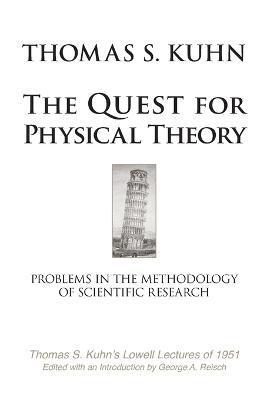The Quest for Physical Theory: Problems in the Methodology of Scientific Research

The Quest for Physical Theory: Problems in the Methodology of Scientific Research
Before he wrote The Structure of Scientific Revolutions, Thomas Kuhn wrote The Quest for Physical Theory--a series of eight lectures that examine the nature of scientific knowledge, how it is created, and how it changes through time. Commissioned as public lectures in 1951 by Boston's Lowell Institute, The Quest for Physical Theory adopts the historical approach Kuhn would later refine in Structure. He surveys the history of physics from Aristotle to Newton, of atomism from antiquity to modern chemistry, and he examines the concepts of fields and subtle fluids a creative metaphors that guide research. In the last four lectures, he turns to logic and philosophy, psychology, and theories of language to explain the workings of "creative science" that are typically ignored by textbooks and many influential philosophers of science.
PRP: 100.67 Lei
Acesta este Prețul Recomandat de Producător. Prețul de vânzare al produsului este afișat mai jos.
90.60Lei
90.60Lei
100.67 LeiLivrare in 2-4 saptamani
Descrierea produsului
Before he wrote The Structure of Scientific Revolutions, Thomas Kuhn wrote The Quest for Physical Theory--a series of eight lectures that examine the nature of scientific knowledge, how it is created, and how it changes through time. Commissioned as public lectures in 1951 by Boston's Lowell Institute, The Quest for Physical Theory adopts the historical approach Kuhn would later refine in Structure. He surveys the history of physics from Aristotle to Newton, of atomism from antiquity to modern chemistry, and he examines the concepts of fields and subtle fluids a creative metaphors that guide research. In the last four lectures, he turns to logic and philosophy, psychology, and theories of language to explain the workings of "creative science" that are typically ignored by textbooks and many influential philosophers of science.
Detaliile produsului











